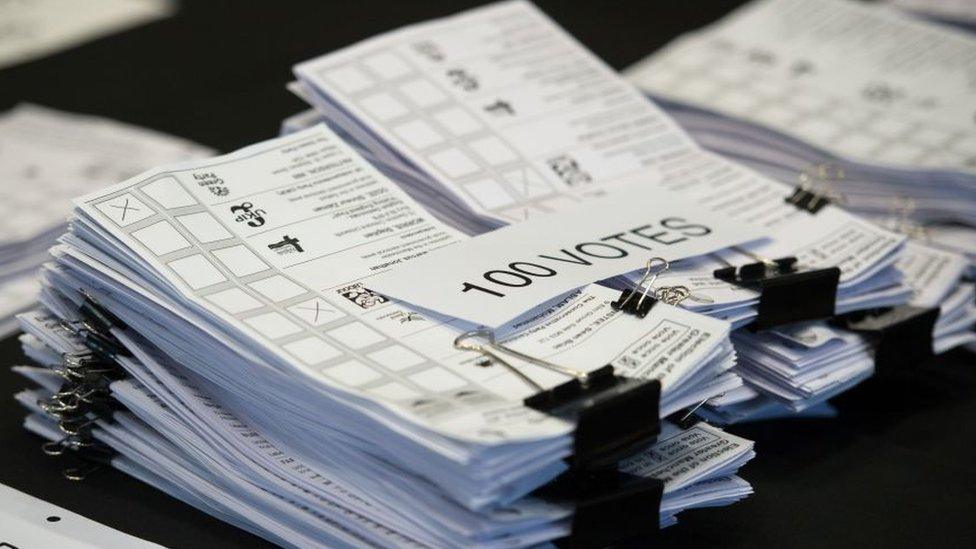Election 1923: When NI last picked its MPs at Christmas
- Published

Northern Ireland's border had yet to be confirmed - a source of concern for unionists in 1923
On 12 December, the UK will hold its first pre-Christmas general election for almost a century.
The Westminster election on 6 December 1923 was the second to be contested in Northern Ireland since partition.
The winter weather didn't prove a problem. It was a mostly fair, mild day.
But in Tyrone's Clogher Valley, the Northern Whig reported: "The frosty conditions of the roads prevented many country folk getting to the booths before noon."
The election resulted in a hung parliament at Westminster and the first ever Labour government, with Ramsay McDonald as prime minister.
Closer to home, constituencies with more than one MP, uncontested seats and a victorious candidate banged up in a prison ship, were among the more curious aspects of a predictable unionist landslide.
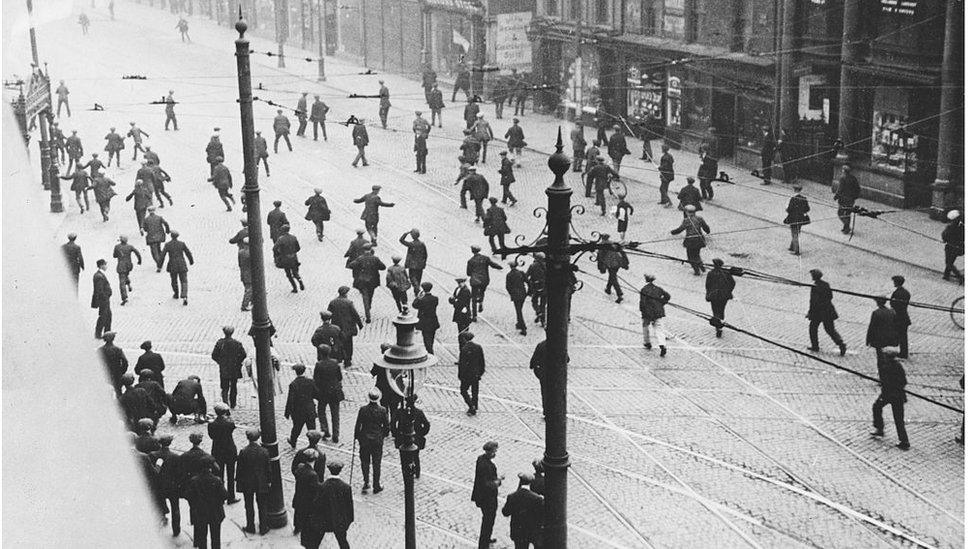
Rioting in Belfast in 1920, but by 1923 the violence had lessened
In 1923, Northern Ireland was entering a period of relative calm following several years of sectarian violence that had left hundreds of people dead.
Partition, the division of the island in two parts, had occurred in 1921 with the establishment of Northern Ireland. The Irish Free State came into being in 1922.
The 1920 Government of Ireland Act left Northern Ireland with 13 MPs, after the 1923 election there were 11 Ulster Unionists and two nationalists.
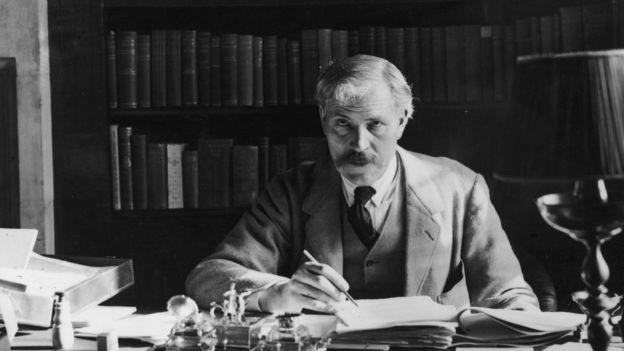
Ramsay McDonald became the first Labour prime minister following the 1923 election, but his government lasted less than a year
Remarkably, Queen's University Belfast had its own MP, and the County Down, Fermanagh/Tyrone, and County Antrim constituencies each elected two.
"Most of the constituencies were uncontested," Prof Brian Walker of Queen's University explains.
"In Antrim, Armagh, Down, Londonderry and Queen's University, unionists were elected unopposed."
Events were enlivened by two left-leaning candidates - independent unionist Thomas Henderson and Labour's Harry Midgley.
Midgley, described by unionist leader Sir James Craig as a "Bolshevik", got 47% of the vote in West Belfast and narrowly lost to Craig's man, Robert Lynn.
Tommy Henderson failed to win the Belfast North seat by just over 1,000 votes.
The nationalist Irish News described how a Midgley election meeting on Belfast's Shankill Road was broken up by stone-throwing loyalists, some of them waving revolvers.
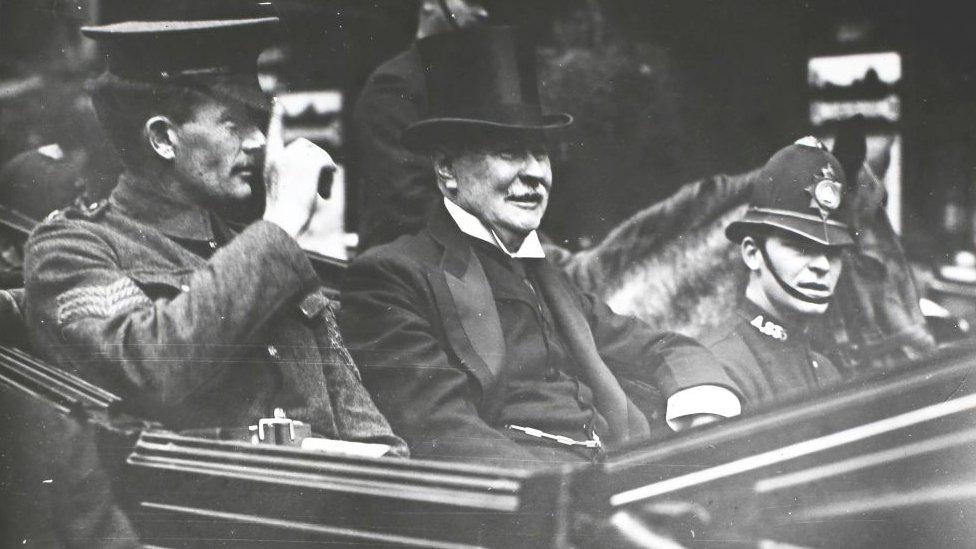
T P O'Connor (in top hat) was 81 when he retired from the House of Commons
The nationalist representation at Westminster was boosted by the presence of T P O'Connor, the MP for Liverpool Scotland.
Known as "Tay Pay", the veteran politician had served as an Irish nationalist member for the constituency since 1885, benefiting from the presence of many Irish voters in the Scotland Road area of the city.
He was a well-known figure at Westminster and became Father of the House, external in 1918.
Cahir Healy, one of the nationalists elected for Fermanagh and Tyrone, was unable to take his seat as he had been interned on the prison ship, Argenta, on Belfast Lough along with 300 republican suspects.
He had a long history of involvement with Sinn Féin before partition, and later turned to constitutional nationalism.
The Irish News reported that in "a savage outbreak of rowdyism" nationalist election agents were attacked as they left the polling station at Lisbellaw in County Fermanagh, one of them receiving "a very ugly wound to the nose".

MPs elected
Antrim Ulster Unionist - Charles Craig and Hugh O'Neill
Armagh Ulster Unionist - William Allen
Belfast East Ulster Unionist - Herbert Dixon
Belfast North Ulster Unionist - Thomas McConnell
Belfast South Ulster Unionist - Thomas Moles
Belfast West Ulster Unionist - Robert Lynn
Down Ulster Unionist - David Reid and John Simms
Fermanagh and Tyrone Nationalist Party - Thomas Harbison and Cahir Healy
Londonderry Ulster Unionist - Malcolm Macnaghten
Queen's University of Belfast Ulster Unionist - Sir William Whitla

MPs in the two-seat constituencies were elected using a system quite unfamiliar to today's Northern Ireland voters.
The plurality-at-large system is non-proportional - voters would have marked the ballot paper with two Xs.
This usually resulted in a clean sweep for the most popular party in the constituency.
In 1923, Antrim and Down both elected two unionists, and the two nationalist MPs were elected in the Fermanagh and Tyrone constituency.
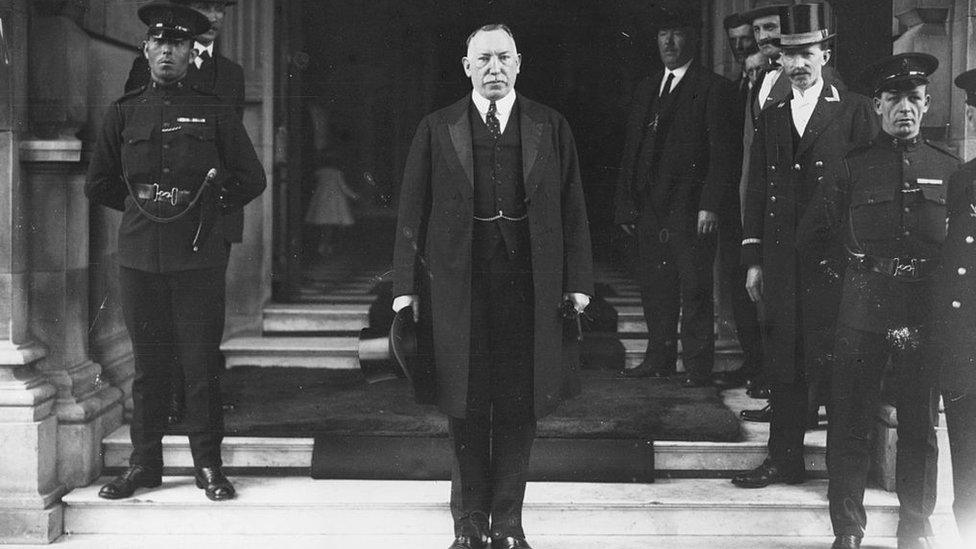
Unionist leader Sir James Craig was the first prime minister of Northern Ireland
The leaders of the two main Northern Ireland parties did not stand in the 1923 Westminster election.
Prof Brian Walker explained that the focus for these parties had turned to Belfast.
"The main politicians from pre-1921 went on to become members of the new Northern Ireland Parliament, and (former unionist leader) Edward Carson went to the House of Lords."
Sir James Craig, who led the Ulster Unionists into the 1923 election, had been a member of the House of Commons from 1906 to 1921.
He became the first prime minister of Northern Ireland when the devolved parliament opened in 1921.
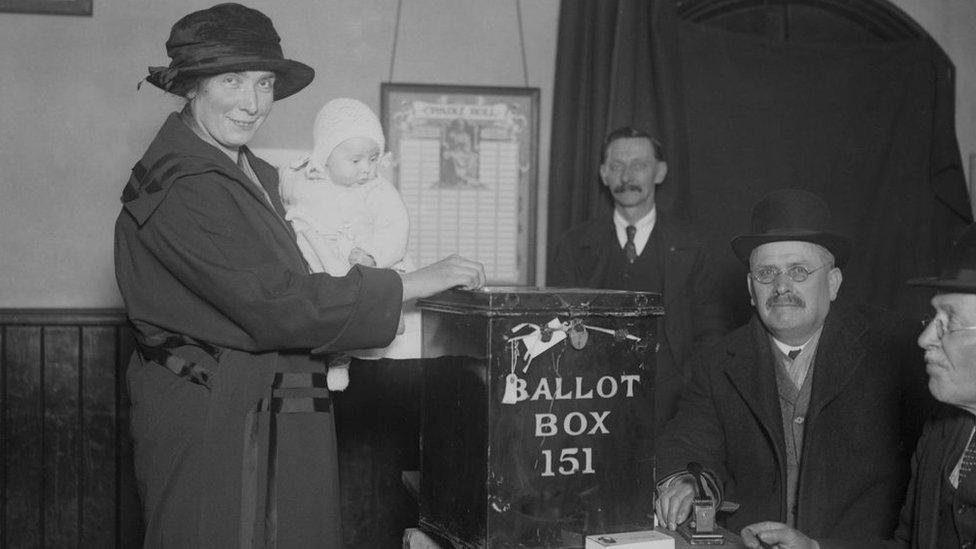
A mother casts her vote in the 1923 election. Only women over 30 could vote until the law was changed in 1928
Joseph Devlin, universally known as "wee Joe", led the nationalists in Northern Ireland at the time.
He had been a Westminster MP for many years, and notably defeated Sinn Féin's Éamon de Valera in the 1918 election for the Belfast Falls constituency.
Joe Devlin's seat disappeared when boundaries were redrawn and eight Belfast constituencies were reduced to four.
The Irish News described the transformation of West Belfast as an "infamous gerrymandering trick".
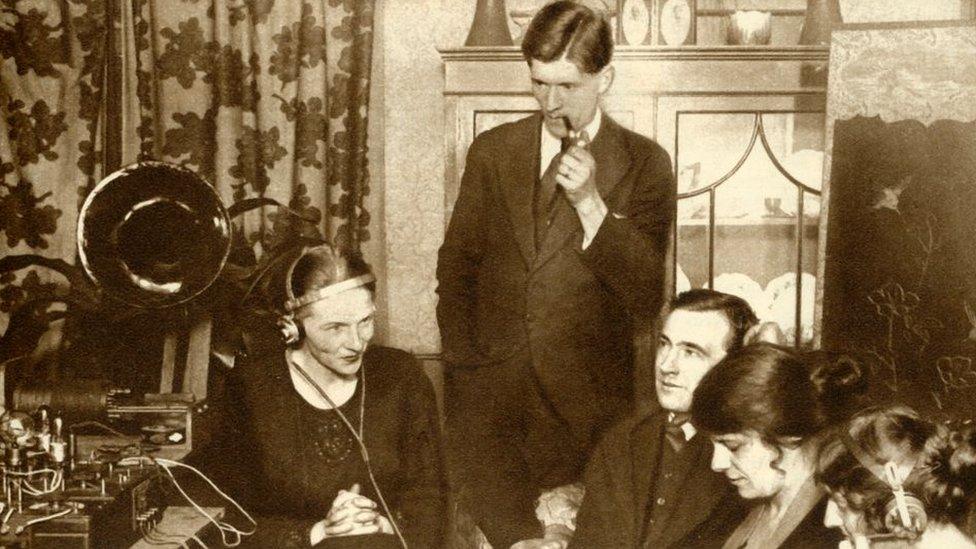
A family listens to the results of the 1923 election on their new-fangled wireless set
On the other side of the newspaper fence, the Northern Whig ran a series of promos encouraging readers to vote unionist.
"Conservatism , which has suffered a severe reverse across the water, has triumphed in Belfast," an editorial noted, with some satisfaction after the election.
- Published6 December 2019
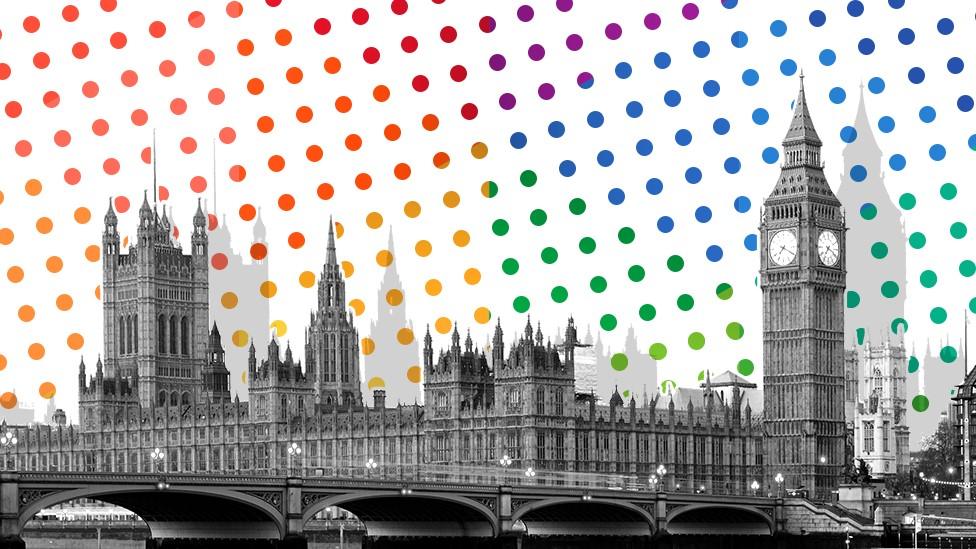
- Published27 November 2019
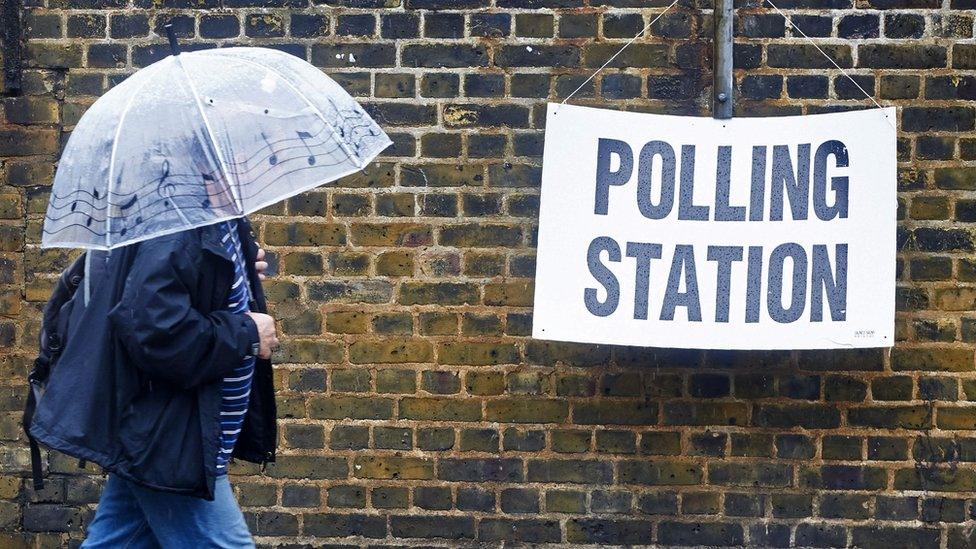
- Published7 November 2019
